- News
- Events
- Oneg Shabbat
- Collections
- Research
- Exhibitions
- Education
- Publishing Department
- Genealogy
- About the Institute
- Bookstore

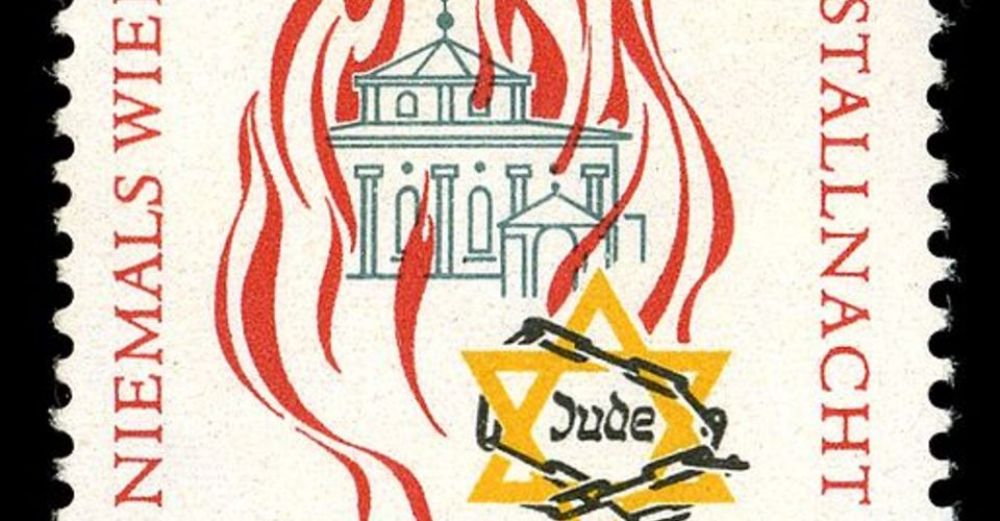
The atmosphere was wonderful. In one of the rooms of Munich’s town hall, members of NSDAP with the lowest numbers of membership cards — the real old guard were clinging their crystal glasses. The attendees were graced by the presence of Leader and Chancellor of the Reich Adolf Hitler. Minister of Propaganda Joseph Goebbels was speaking. At 10:50 pm all the guests peeled off. A few hours later, during the night of 9th November, 1938, Germany was filled with a wave of anti-Semitic pogroms.
Almost in every city of the Third Reich, panes in Jewish flats and shops were being smashed and looted, synagogues set on fire and cemeteries desecrated. The crowd led by members of The Sturmabteilung (Assault Division of NSDAP), wearing brown shirts, hit and humiliated encountered Jews. The police and fire brigade did not react. They got involved only when property of the Germans was at stake. Not earlier than about 5pm Goebbels gave a command through the radio to cease any „spontaneous demonstrations”. Tired but also fulfilled crowd began going home.
During the Crystal Night, called so because of the glass slivers scattered around German and Austrian cities, 91 Jews were killed and 20–30 thousand were placed in concentration camps.
Nazi authorities had been planning the escalation of the violence towards the Jews for a long time. The death of the secretary of the German Embassy in Paris, Ernst vom Rath, was considered to be a perfect pretext for its beginning. Vom Rath died of gunshot wounds to the abdomen having spent two days in hospital, where he was taken care of by Hitler’s personal physician. He had been shot by a seventeen-year-old Herschel Grynszpan, the son of Polish Jews, who had emigrated to Hanover a few years before the outbreak of the First World War. Herschel’s desperate act was a retaliation for what had happened to his family a week earlier.
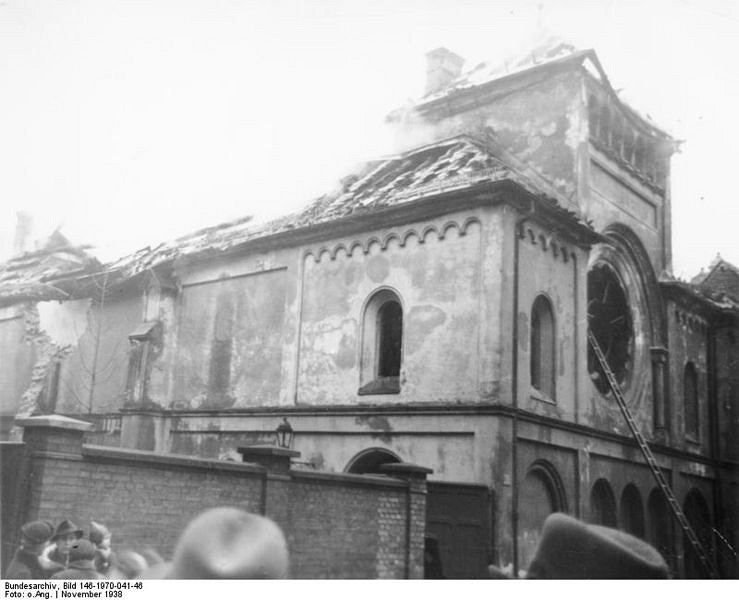
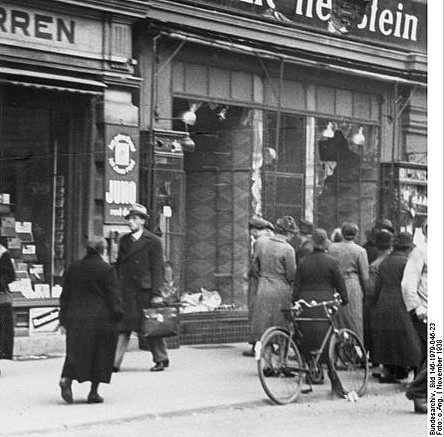
On 26th October, the Gestapo was given an order to immediately arrest the Jews of Polish descent living in Germany and deport them immediately to Poland. They were invaded in their homes and taken outright allowed only to take one piece of luggage. Within a few days of Polenaktion, 17 thousand Jews were sent in sealed wagons to the Eastern border of the Reich.
Legal situation of these people was extremely bad. Already in March 1939 Polish government, for fear of massive returns of the Polish Jews who were being persecuted in Germany, passed a law which deprived persons of citizenship of they were living for more than five years abroad. In August, German authorities annulled all permanent residence permits for foreigners. At the same time, it was clear that the Jews would not get new permits. In practice, they became stateless. Polish authorities agreed to admit Jews already deprived of Polish citizenship but only till the end of October. And thus the rush of the Gestapo members responsible for arresting them.
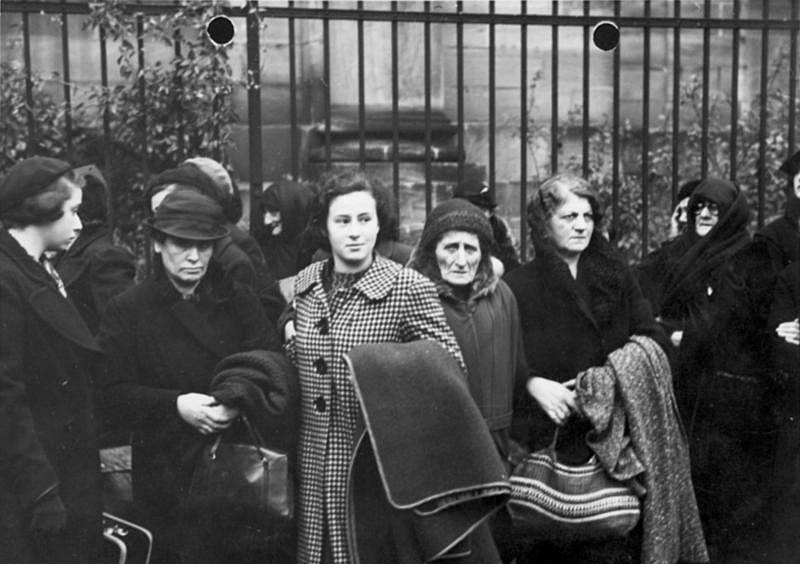
The deported Jews were brought from Zbąszyń, a small town on the German-Polish border. Polish authorities admitted only a few thousand refugees, and another 12 thousand, including the elderly and children, were forced to camp at the station and in nearby barns. Polenaktion was withheld only when Polish government threatened to deport German citizens. The majority of Jews, who the Germans had not been able to transport through the Eastern border, were taken to concentration camps.
Among the Jews imprisoned in Zbąszyń was a tailor Zendel Gryszpan with his wife Ryfka, Herschel’s parents as well as his brother Mordechai with wife Berta. He himself, since 1936, had been living at his aunt and uncle’s in Paris, where on 3rd November he received a letter informing him on the desperate situation of his family. Four days later, Herschel Grynszpan went out, bought a revolver with bullets and went to the German Embassy. He asked to see Ambassador Joannes von Welczka, but he was admitted only to see the Secretary of the Embassy, vom Roth, at whom he shot five times, wounding him fatally.
Herschel was arrested and put in prison. Even though, just before the fall of France, he was allowed to escape, the Germans captured him again. It is not known what happened to him later; most likely he was murdered by the Germans. However, he did not have a show trial that had been planned.
Before setting off to the Embassy, Herschel wrote a postcard addressed to his parents which he put into a pocket of his coat, expecting the worse:
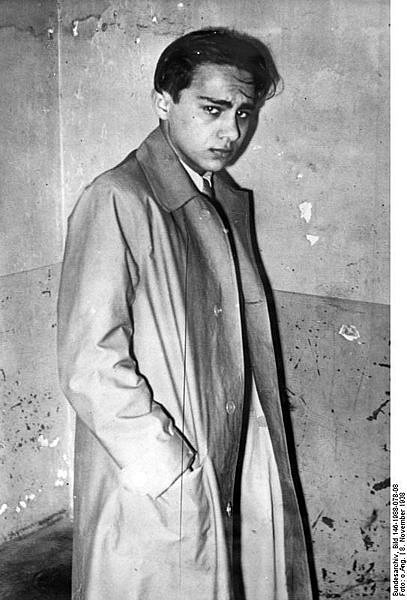
With God’s help. My dear parents, I could not do otherwise, God forgive me, my heart bleeds when I hear about your tragedy and 12 000 Jews. I must protest so that the whole world knows about my protest, and I will do it. Forgive me.
The world heard Herschel’s protest. And the Nazis used it to spark aggression towards the Jews, aggression on a scale the history had not witnessed yet. However, it was only an introduction to the activation of the murder machine, which within the next few years was to eliminate almost 6 million people.
Author: Cyryl Skibiński